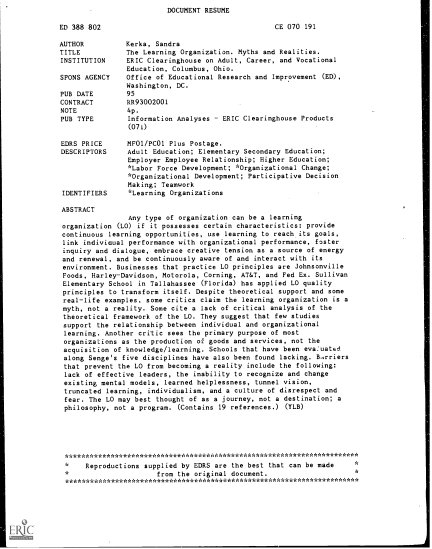
Any type of organization can be a learning organization (LO) if it possesses certain characteristics: provide continuous learning opportunities, use learning to reach its goals, link indivicual performance with organizational performance, foster inquiry and dialogue, embrace creative tension as a source of energy and renewal, and be continuously aware of and interact with its environment. Businesses that practice LO principles are Johnsonville Foods, Harley-Davidson, Motorola, Corning, AT&T, and Fed Ex. Sullivan Elementary School in Tallahassee (Florida) has applied LO quality principles to transform itself. Despite theoretical support and some real-life examples, some critics claim the learning organization is a myth, not a reality. Some cite a lack of critical analysis of the theoretical framework of the LO. They suggest that few studies support the relationship between individual and organizational learning. Another critic sees the primary purpose of most organizations as the production oE goods and services, not the acquisition of knowledge/learning. Schools that have been eva2uated along Senge's five disciplines have also been found lacking. B,irriers that prevent the LO from becoming a reality include the following: lack of effective leaders, the inability to recognize and change existing mental models, learned helplessness, tunnel vision, truncated learning, individualism, and a culture of disrespect and fear. The LO may best thought of as a journey, not a destination; a philosophy, not a program.